Feeding Schedule and Socialization Goals
Most important supplies: scale made for birds, O-ring syringes, Oxyfresh Cleaning Gel, bottle warmer made for human babies, a brooder that stays between 73-83 F, and Roudybush Handfeeding Formula (consistency of split pea soup to a heavy gravy served between 103-109 F with no dry, solid spots. Nothing should ever be added to the formula, and the formula should have the same thickness consistency from two weeks until weaned.)
Brooder Set-up:
2 weeks old: 5 feedings every 4 hours (8:00am, 12:00pm, 4:00pm, 8:00pm, 12:00am.) Many other breeders only feed 4 times every 4 hours the first week, but we do not want the babies crying for food in the middle of the night. Just like human babies, there are small babies (Pixy!) and there are large babies (her brother Jelly Bean!), so the amount of food is going to vary around 3.5-4.5 cc’s. Tamara and I do not say, “Ok baby, you have had 4 ccs, your full!” No, we fill up the babies until their crops resemble a full balloon or when they simply do not want anymore. Feed the babies all at once; competition is your greatest ally. Well-socialization goal: babies should recognize you, have a wonderful feeding response, and have names.
3 weeks old: 4 feedings every 4 hours (8:00am, 12:00pm, 4:00pm, 8:00pm.) Just fill those crops until they look and feel like a full balloon. At 3.5 weeks old, the babies will start to chew on their bedding. This is the time to introduce “big bird” food. Fresh, chewy Avicakes are the perfect introduction to solid food. Avicakes are highly nutritious unlike seed or millet. After babies are fed baby food, place a very small crumb into their mouths. This works great as a birdie pacifier also. We never feed them mashed-up or soft foods for weaning. Starting them on what they will eat as adults is best. After they are eating “big bird” food, we introduce small foot toys and toys they can shred. Well-socialization goal: babies try “big bird” food, recognize your voice, and step-up on your palm to be fed.
4 weeks old: 3 feedings every 6 hours (8:00am, 2:00pm, 8:00pm.) We never drop their feedings to three until we know they are eating the Avicakes on a regular basis. This is the time when we introduce crushed-up Nutri-Berries and a small pellet like Roudybush Crumble. Depending on the size of the baby, they should be receiving around 6 ccs at this point. Once again, feel the crop and if the babies refuse, do not force them to eat. After we feed them baby food, we place them over the solid food bowl. This is the time we introduce a small dish of water also. Well-socialization goal: babies play with toys, eating adult food on a regular basis, and cry out not only for baby food, but for attention also. Some of the older babies at this point have a natural protective instinct of their siblings and territory, so to dilute this trait we lay down on the floor, cuddle, play with them with their toys, and feed them adult food by hand after each feeding. When they have fallen asleep, we place them back into the brooder.
5 weeks old: 2 feedings every 12 hours (8:00am and 8:00pm or 6:00pm if some of the babies are screaming.) At 5.5 weeks of age the babies will start to fly. There first flight is always to us. This is always a true sign that your babies see you more than just the ones who feed you. It is a sign that they love you. This is one of the most awesome milestones for baby’s socialization. This is also the week we introduce seed, because as the babies wean they need that extra burst of energy that the fat in seed has in storage. The fat also fills them up more and helps them strive between feedings. Concerning feedings, some babies at this age take well over 8 ccs of baby food. When we reach 1 feeding per day, they can receive up to as much as 10 ccs. Well-socialization goal: babies fly to you, recognize their names, and are placed in a weaning cage with a tent or cozy to sleep in. The tent needs to be large enough for all the babies.
6 weeks old: 1 feeding per day at 6:00pm or 8:00pm (babies can feed from 7-10 ccs at this point.) If we have a large clutch, 4 or more babies, the prodigies will normally wean during this week. Well-socialization goal: babies are filling up on adult food in the morning, babies want to come out of their weaning cage to fly, cuddle, and most importantly play with toys independently on a playground. Babies should never be on a person all the time when they are outside of their cages. They have to learn independent play and have foraging opportunities.
7 weeks old: a baby should wean at anytime now. If they do not cry for their evening feeding, then do not give it to them. At 7 weeks, we introduce cooked foods, fruits, sprouts, and veggies. The babies will see the adults eating the food and will follow their lead. Many breeders and pet stores separate their babies in individual cages so they will not bond with each other. This is one of the worst things they can do for a baby, especially one that has not weaned yet. Birds need that competition of the food bowl, thus learning to eat on their own and whenever food is presented. Lovebirds that also learn to compete for food will naturally compete for your attention also thus making trust issues virtually nonexistent. Well-socialization goal: the babies step-up from inside their cage, and the babies are excited to see you. Babies need a reason to want to come out of their cages such as a playground. That, plus routine, is the key to a well-socialize parrot and not one that is caged bound and only finds security in the confounds of their bars.
8 weeks old: weaned. If you decide to clip, never clip a bird before they wean or they might not ever see a reason to get off the baby food. This is nature’s way: stop begging, get off Momma’s fat baby food, and fly! Even though socialization starts as early as two weeks, true socialization actually starts the week babies wean. Too many times we have seen and heard stories of birds that were handfed, but they turned wild. It happens during this week. The babies no longer need you as a source of food, so you need to show them that they still need you for other reasons: love, another source of fun, security, and socialization. During this week, most birds forgot you ever handfed them. All handfeeding does is that it gets a bird use to the presence of humans. So during the week your babies wean, the most important thing any of us can do is to continue a balance of training, positive reinforcement, cuddle time, and independent play. Why is a well-socialized parrot such an important goal? The simple answer is because they will live with people. If a bird is truly trust worthy, affectionate, and socialized, then chances are their humans will see them more than just birds in a cage, but as true family members. Thus, living a full and enrich life in a human household. Well-socialization goal: babies enjoy a great head rub and have first full vet check from an Avian Veterinarian.
~Rodney Money
True Love Aviary

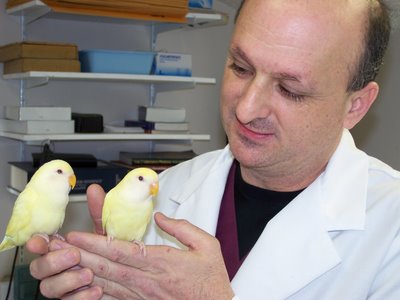

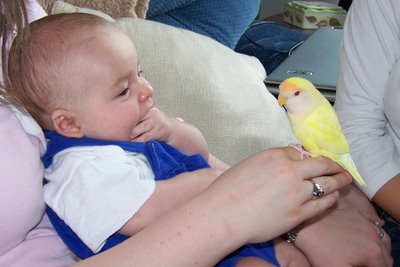



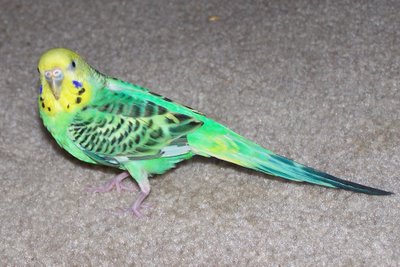

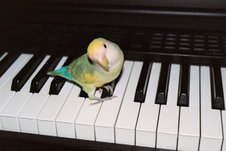
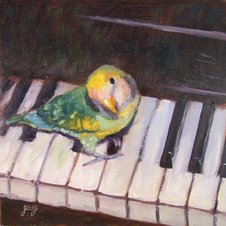
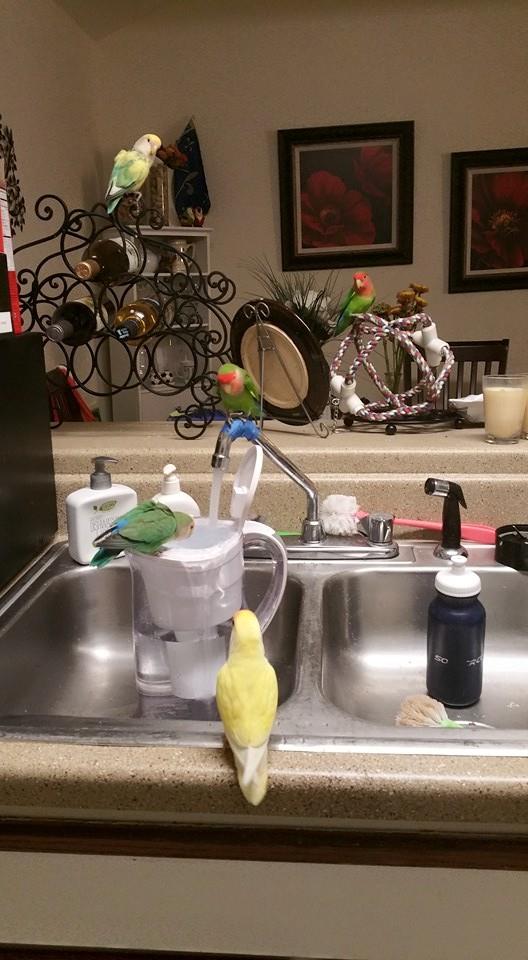














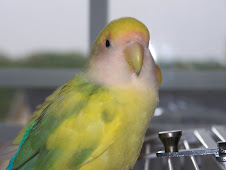

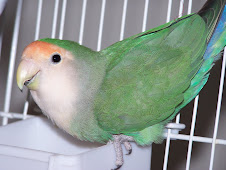



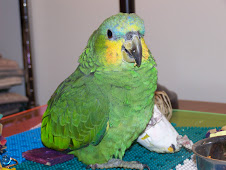
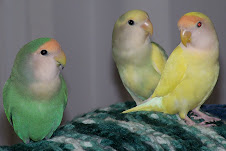


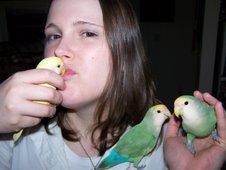
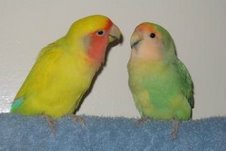
.jpg)
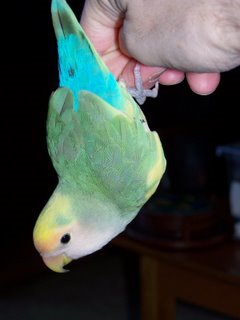
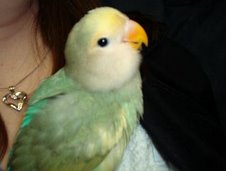
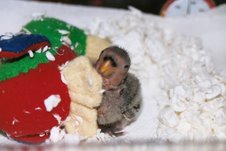
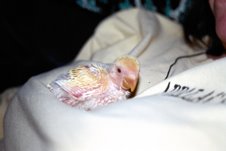



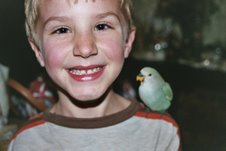
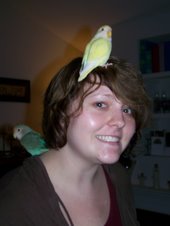
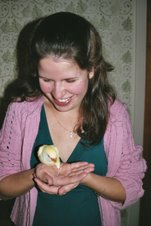



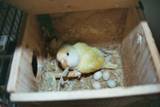
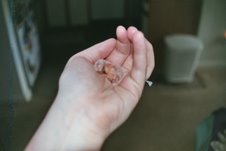
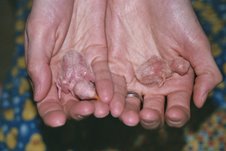
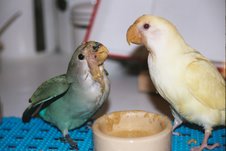
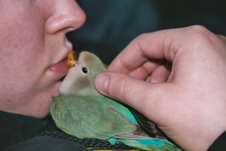
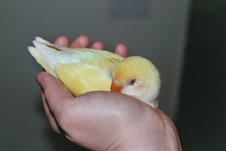
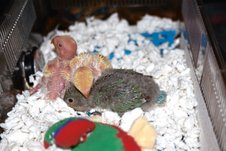
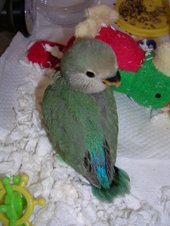
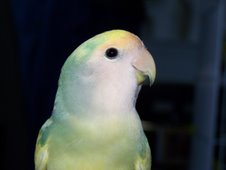
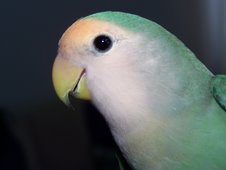
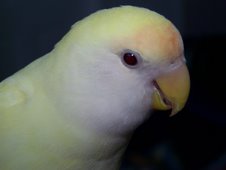
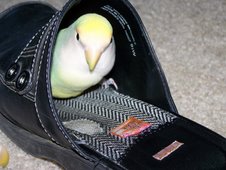
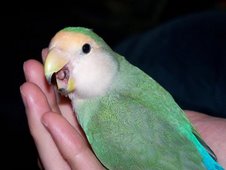
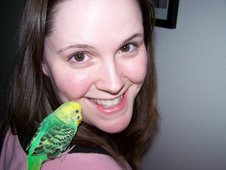
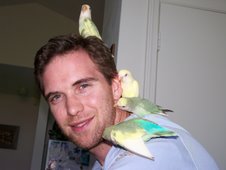

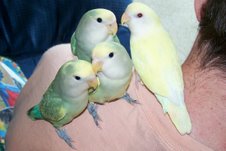



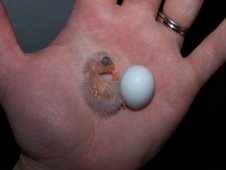
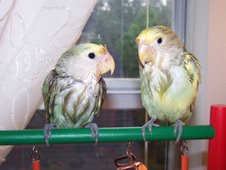



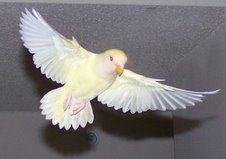

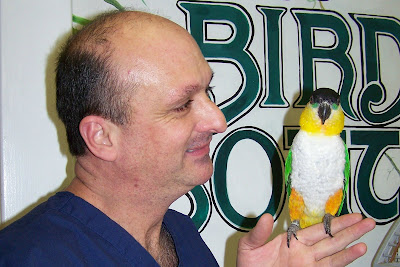







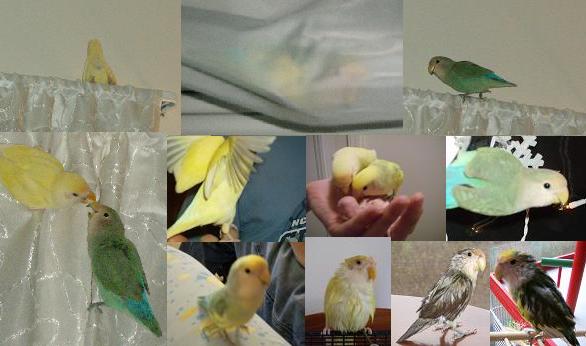
No comments:
Post a Comment